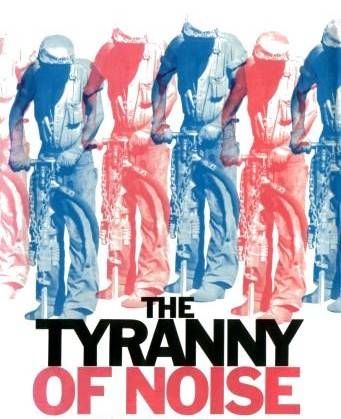
The last few months of Urbana City Council meetings were enlivened by weekly protests from citizens, representing all points of the political spectrum, voicing outrage over Urbana’s so-called “criminal nuisance” ordinance. This is the law which would penalize landlords for the behavior of their tenants.
My cynical response is that the outraged citizens shouldn’t worry. Urbana doesn’t enforce its nuisance laws anyway.
In 1972, the U.S. Congress established the Office of Noise Abatement and Control, or ONAC. But in 1981, the Reagan Administration defunded ONAC, thereby giving the responsibility back to the states, and cities like Urbana. The EPA still cares. They just don’t have the authorization to do anything. That’s why local governments, like Urbana’s, must act.
The National Institutes of Health cares too. So does the Oxford Journal Review. And Health News Digest. And the American Psychological Association.
Nonauditory effects of noise exposure include elevated blood pressure, loss of sleep, increased heart rate, cardiovascular constriction, labored breathing, and changes in brain chemistry. According to the World Health Organization’s Guidelines for Community Noise, “these health effects, in turn, can lead to social handicap, reduced productivity, decreased performance in learning, absenteeism in the workplace and school, increased drug use, and accidents.”
Study after study has shown that children who live in neighborhoods with chronic noise nuisance perform worse in school. As usual, the victims tend to be from lower socio-economic backgrounds, and minorities.
Right now, the Urbana police will shut down a kegger if it’s keeping you awake. But there’s no city officer responsible for quieting chronic noise nuisance — whether it’s barking dogs or modified exhaust systems on cars and motorcycles.
It’s not really a police matter anyway. It’s a community development issue. Urbana is a lovely place to live, raise children, and grow old. It should be lovely for everyone, even if they live east of Vine Street or north of Springfield.
If you seek quiet enjoyment of your home, Urbana expects you to do the work. You have to stand up in court and face your neighborhood bully. Even if you have three children to watch over, even if you are confined to a wheelchair, even if you are 80 years of age and not as nimble as you once were. That’s because Urbana has an inconsistent view of the sixth amendment to the Constitution. (That’s the one that allows you to confront witnesses against you.)
When you get a speeding ticket, the courts don’t demand other drivers to come in and finger you. No one is asked to pull over and watch your field sobriety test in preparation for later testimony. But Urbana’s policy is to not prosecute perpetrators of chronic anti-social behavior unless the victims are willing to take time off work, find a babysitter (or a person to help them get downtown), and put themselves at risk.
News reports of violent or abusive retaliation are not uncommon. That’s why a lot of people put up with abusive neighbors when cities like Urbana fail to help. (Here’s an example. Here’s another. Here’s another one. And another. This too. And this. And one with video. And by the way, these cases are increasing in number. Now would be a great time to get a handle on the situation.)
Some cities have an ombudsman or a public advocate. Other towns have “Livability Court.” (See also, here.) In either case, it’s not the victim who’s expected to enforce the ordinance. It’s the professional. Urbana can have that, too.
Government taxes citizens. In return, it provides services. One of these services is upholding and enforcing the law. Government usually does not ask the people to police and prosecute law breakers. But, that’s how Urbana handles nuisance issues.
It’s a bad idea. It’s a dangerous idea.
Would you care to know how many innocent victims have been assaulted or even killed because they confronted bothersome neighbors? The judges who adjudicate disputes between neighbors will tell you, “when it’s neighbor versus neighbor, it’s never over.”








